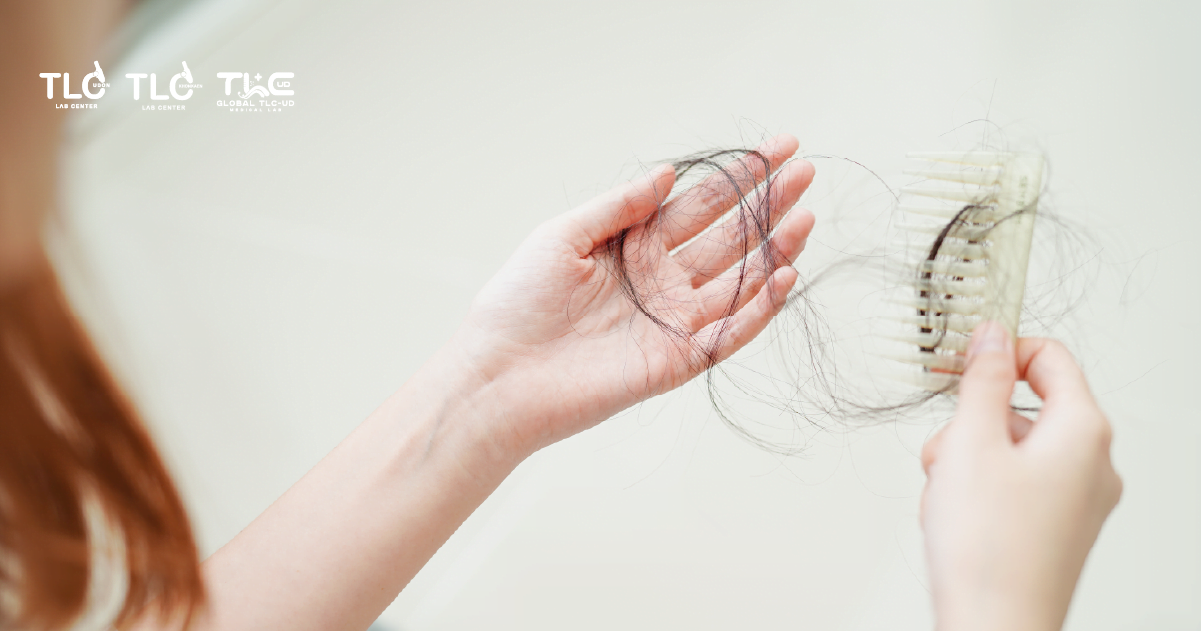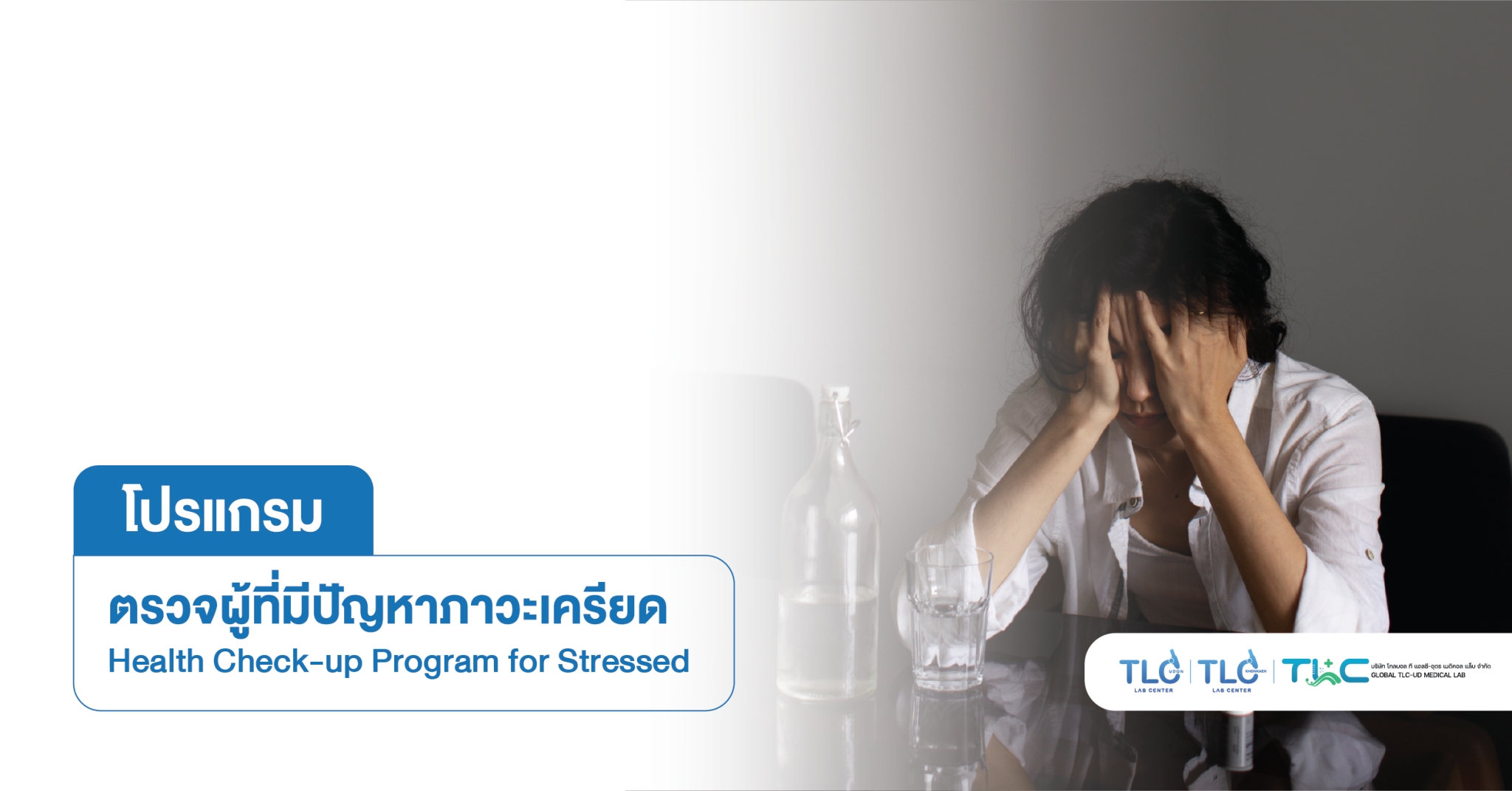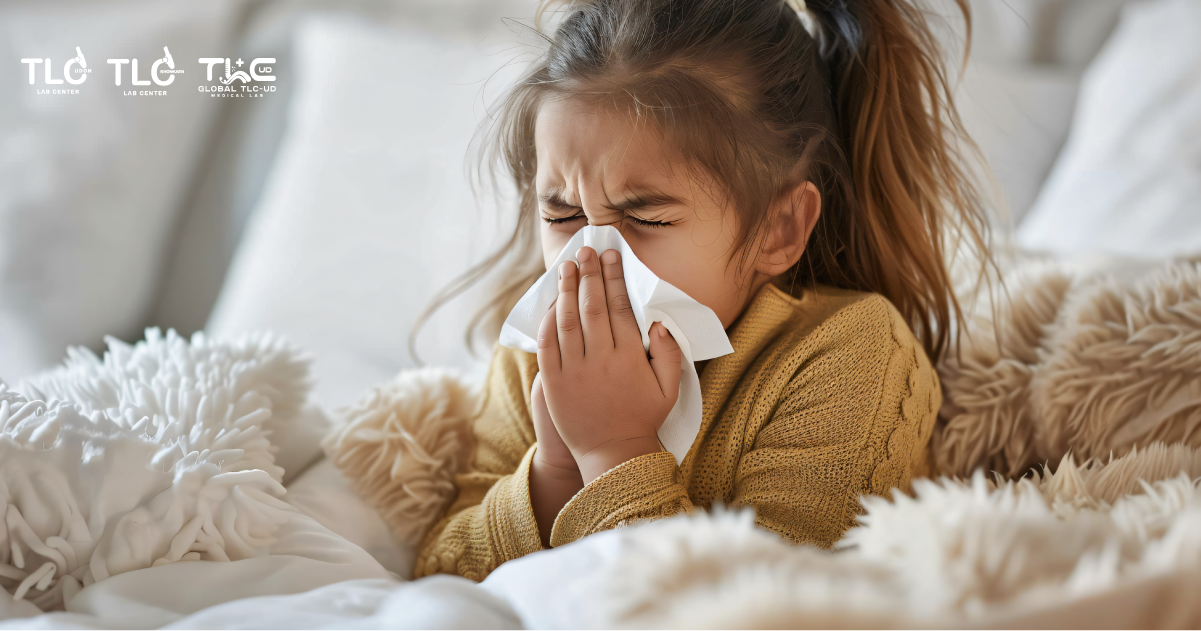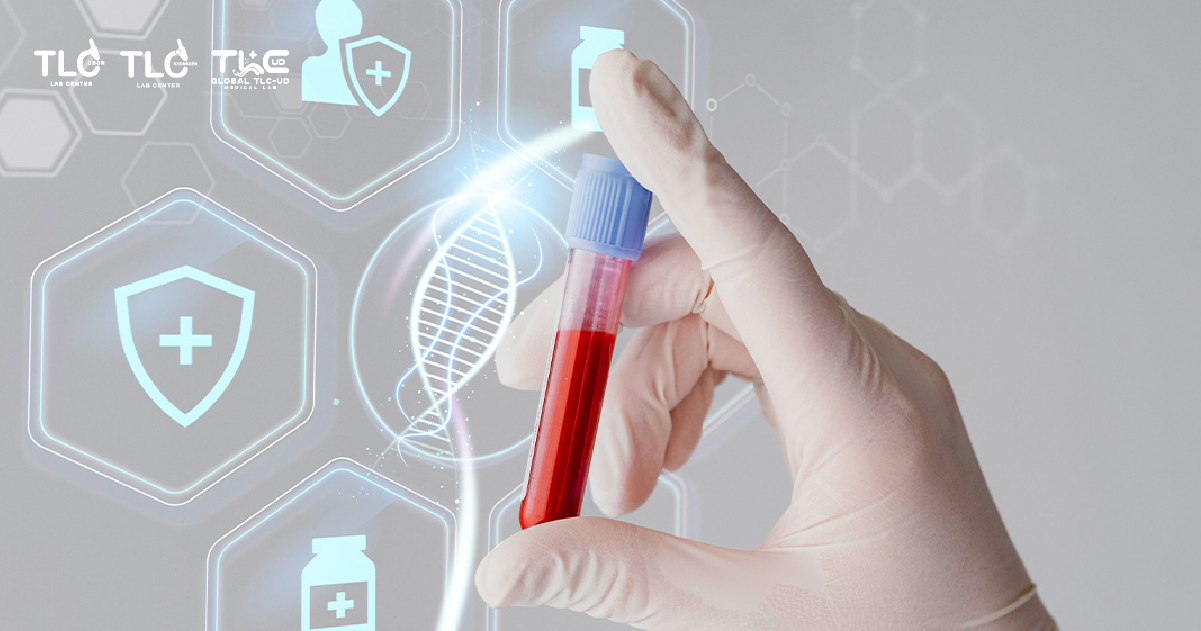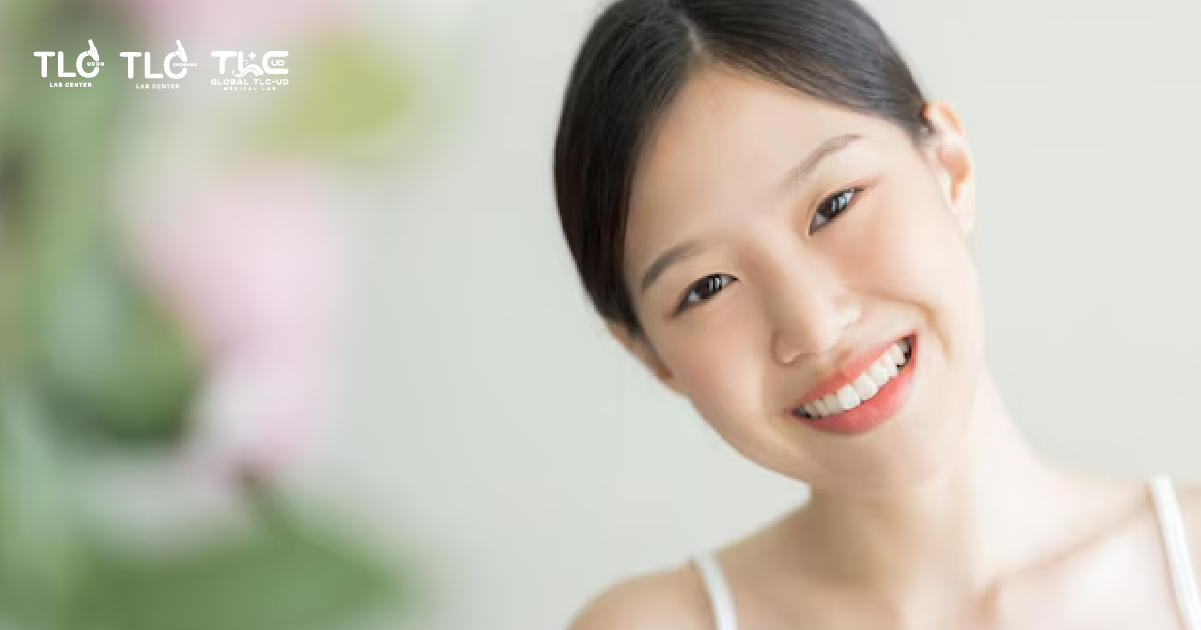What is hair loss?
Hair loss refers to the shedding of hair on the scalp or hair follicles on various parts of the body in accordance with the natural hair life cycle, which involves aging, shedding, and regrowth. Factors such as genetics, hormones, illness, age, and accumulated stress can also contribute to hair loss. Whether it’s patchy hair loss, sudden hair loss, or premature balding, it can have adverse effects on one’s personality, leading to increased stress and diminished confidence.
What causes hair loss?
Hair loss is mainly caused by 2 factors :
1.Scaring alopeciais a type of hair loss in which hair follicle cells are permanently destroyed and new hair cells cannot be formed. Causes of hair loss with scarring on the scalp include :
- Chronic dermatitis caused by immune disorders such as DLE, Lichen planopilaris, or LPP
- Frontal fibrosing alopecia (FFA) is a scarring alopecia that causes inflammation of the scalp, red scalp, flaking and damage to hair follicle cells, leading to baldness. It is more common in females than males.
- Bacterial infections
- Dissecting cellulitis / Dissecting folliculitis
- Folliculitis decal vans caused by an abnormal body response to staphylococcal bacteria. Aureus (Staphylococcus aureus)
- Tuberculosis, Syphillis
- Viral infections such as herpes zoster, herpes simplex
- Mycosis on the scalp such as tinea capitis
- Some chemicals that are corrosive to the scalp, such as substances with high acidity or alkalinity.
- Appendage tumour
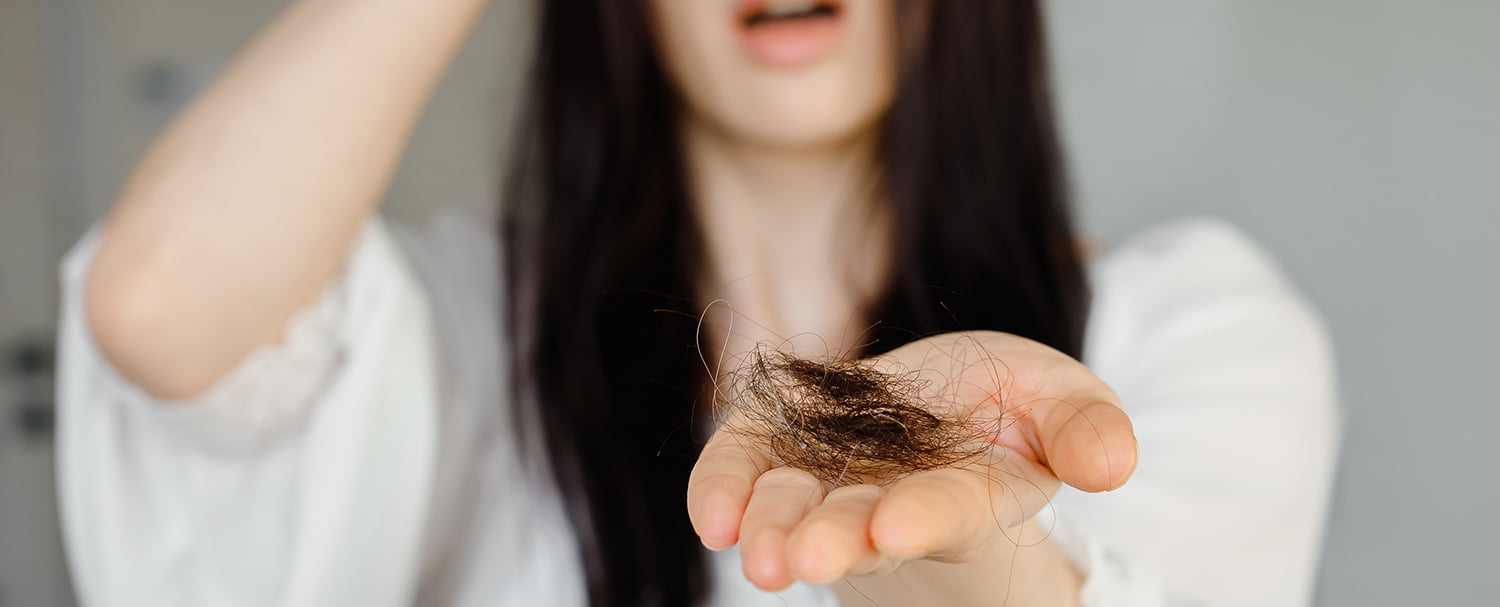
2. Non-scaring alopeciais a type of hair loss in which hair follicle cells have not been permanently destroyed, resulting in circular or oval patches of hair loss. It has clear perimeters, and is caused by
- Heredity (Androgenic alopecia)
- Alopecia areata : It is a hair loss caused by an autoimmune disease.
- Acute alopecia (Telogen effluvium) is a rapid loss of abnormal hair in a short period of time. Causes of Some diseases, such as thyroid disease, Hyperthyroidism, Anaemia, Thalassemia, HIV
- Postpartum conditions
- Illness such as high fever, or post-surgery that causes temporary hair loss
- Side effects from certain medications
- Rapid weight loss
- Anagen effluvium, such as chemotherapy or radiotherapy (Chemotherapy)
- Infections such as fungus on the scalp
- Certain medications that can cause side-effects, such as cancer medications, arthritis, depression, gout, heart disease, high blood pressure, or birth control pills
- Aging causing a decrease in hormone production in the body.
- Stress or exposure to traumatic events that may affect the mind. This causes the body to produce the hormone cortisol, a stress hormone that causes hair loss or hair thinning
- Certain behaviours such as unconsciously pulling one’s own hair (Trichotillomania)
- Pulling the hair too tightly. Wearing a ponytail, and braiding the scalp
- Nutritional deficiencies such as iron or protein
What are the symptoms of hair loss?
- Gradual thinning on top of the head : The most common hair loss at the onset of age is the cause of male-pattern baldness.
- Circular or patchy bald spots on the scalp.
- Sudden loosening of hair : Hair loss caused by shock that affects the body and mind to the extent that it causes large amounts of hair to fall out while combing, washing or even gently pulling hair.
- Full body hair loss : Hair loss caused by certain diseases or certain medical treatments such as chemotherapy to treat cancer can cause hair loss throughout the head and body hair loss.
- Patchy hair loss and flaky scalp : It may be caused by fungus, eczema, chloasma.
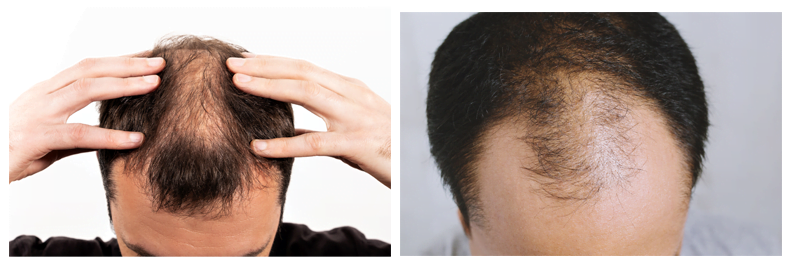
How to prevent hair loss or thinning hair :
- People with medical conditions such as thyroid disease or other medical conditions should consult a doctor for treatment and prevention of hair loss.
- Choose hair care products that are suitable for the scalp, and which don’t cause allergic reactions, dandruff or itching.
- Eat all 5 food groups with complete nutrients and sufficient calories, protein and iron.
- For those undergoing chemotherapy, a cap should be worn to help cool down the scalp.
- Avoid stress, and know how to relax.
I lose a lot of hair, what should I eat?
People with a lot of hair loss should eat good food and have nutrients that contain protein, biotin. Zinc and selenium, as well as other nutrients to help nourish the hair.
- Oily marine fish with OMEGA3 and vitamin D such as salmon, mackerel, or tuna.
- Eggs to provide protein. Vitamin B12, selenium, zinc and iron that help keep hair healthy and reduces shedding.
- Green leafy vegetables such as kale, spinach, and kale are rich in beta-carotene, Folate and iron which nourishes hair
- Berries, oranges, fruits high in vitamin C and antioxidants that aid in iron absorption.
- Cereals and dried beans containing biotin, Vitamin E, zinc, and selenium such as almonds, siaa seeds and flax seeds

โปรแกรม ตรวจเลือด หาสาเหตุ ของ ผมร่วง (คลิกดูรายละเอียดที่นี้)

